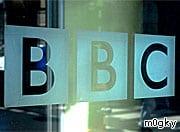The BBC’s output is ‘too Christian’ and more room should be made for content from other faiths, the corporation’s head of religion and ethics has said.
Aaqil Ahmed, a practising Muslim, has compiled a report suggesting that Islam, as well as Hinduism and Sikhism should get more airtime.
The report is being considered by the Director-General of the BBC, Lord Hall, who could make changes to its religious output.
Output
Ahmed claimed that Christianity remains the “cornerstone” of religious output, above other faiths, but added that this output is “not static”.
He said: “It has evolved over the years and we regularly assess it.
“We do look at the number of hours we produce, and measure that against the religious make-up of society.”
Inaccurate
Ahmed’s appointment was met with criticism back in 2009 over the pro-Islam bias in some of his work while he was at Channel 4.
His series ‘Christianity: A History’ was dubbed “inaccurate and badly researched”.
At the time, the BBC had also just appointed a member of the British Humanist Association to its new religion board and a Sikh as producer of Songs of Praise.
Bias
In recent years the BBC’s own employees have repeatedly drawn attention to the corporation’s bias against Christianity.
In 2012, former newsman Dennis Sewell provided evidence that the broadcaster is ‘culturally biased’ against evangelical Christians.
He produced a report which accuses the BBC of being over-considerate towards Islam — in marked contrast to its treatment of Christianity.
Anti-Christian
The former head of the BBC, Mark Thomson, also admitted that the broadcaster would never mock Mohammed like it mocks Jesus.
This was borne out the following year as the BBC ran a programme at Easter suggesting that Mary Magdalene was married to Jesus Christ.
BBC presenter Roger Bolton has also highlighted the broadcaster’s anti-Christian bias. He has said the BBC regards Christian views as “lunatic” and that those who disagree with same-sex marriage are “throwbacks who are damaging the church”.

